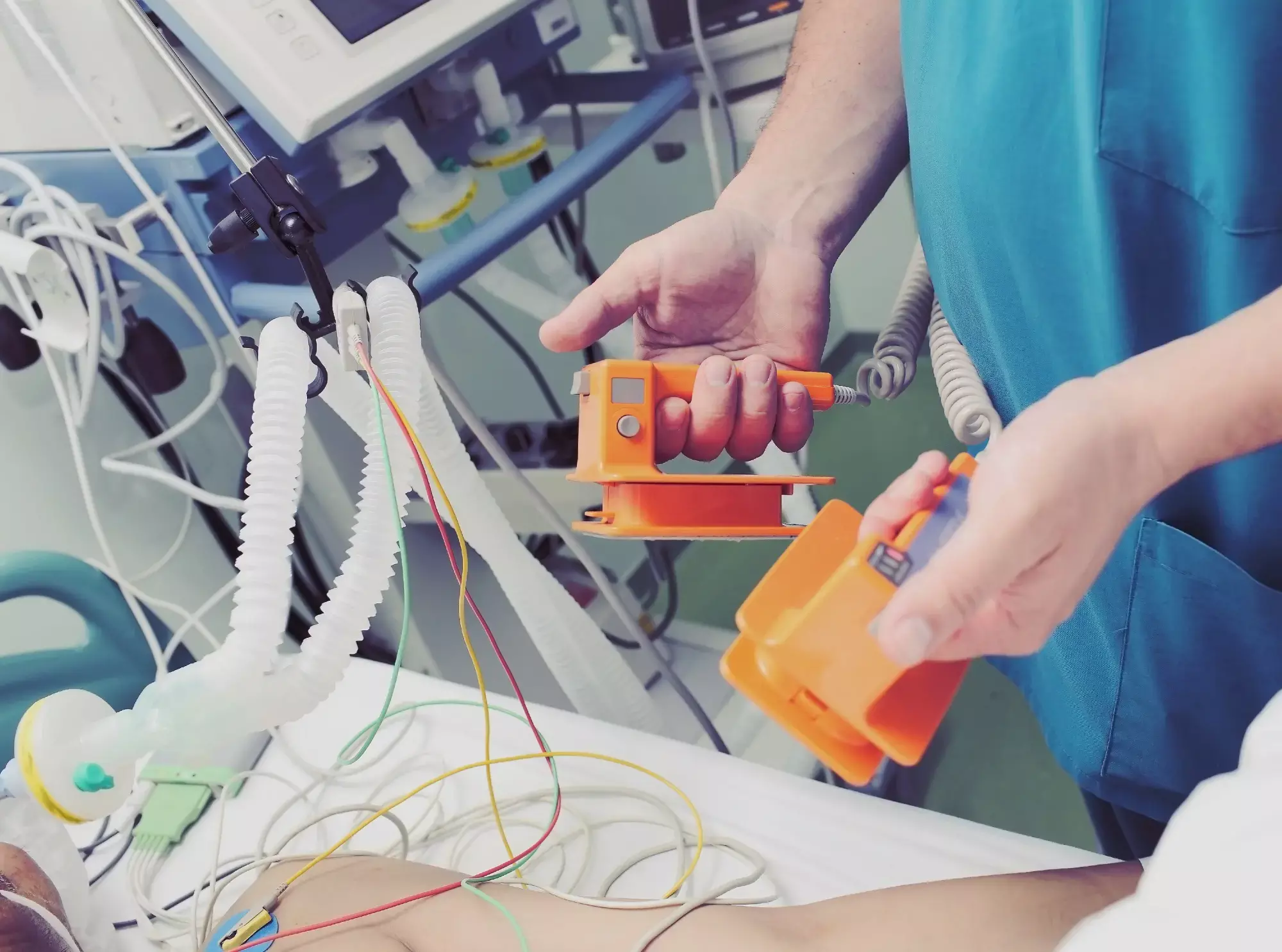- Home
- Medical news & Guidelines
- Anesthesiology
- Cardiology and CTVS
- Critical Care
- Dentistry
- Dermatology
- Diabetes and Endocrinology
- ENT
- Gastroenterology
- Medicine
- Nephrology
- Neurology
- Obstretics-Gynaecology
- Oncology
- Ophthalmology
- Orthopaedics
- Pediatrics-Neonatology
- Psychiatry
- Pulmonology
- Radiology
- Surgery
- Urology
- Laboratory Medicine
- Diet
- Nursing
- Paramedical
- Physiotherapy
- Health news
- Fact Check
- Bone Health Fact Check
- Brain Health Fact Check
- Cancer Related Fact Check
- Child Care Fact Check
- Dental and oral health fact check
- Diabetes and metabolic health fact check
- Diet and Nutrition Fact Check
- Eye and ENT Care Fact Check
- Fitness fact check
- Gut health fact check
- Heart health fact check
- Kidney health fact check
- Medical education fact check
- Men's health fact check
- Respiratory fact check
- Skin and hair care fact check
- Vaccine and Immunization fact check
- Women's health fact check
- AYUSH
- State News
- Andaman and Nicobar Islands
- Andhra Pradesh
- Arunachal Pradesh
- Assam
- Bihar
- Chandigarh
- Chattisgarh
- Dadra and Nagar Haveli
- Daman and Diu
- Delhi
- Goa
- Gujarat
- Haryana
- Himachal Pradesh
- Jammu & Kashmir
- Jharkhand
- Karnataka
- Kerala
- Ladakh
- Lakshadweep
- Madhya Pradesh
- Maharashtra
- Manipur
- Meghalaya
- Mizoram
- Nagaland
- Odisha
- Puducherry
- Punjab
- Rajasthan
- Sikkim
- Tamil Nadu
- Telangana
- Tripura
- Uttar Pradesh
- Uttrakhand
- West Bengal
- Medical Education
- Industry
Early Cardioversion Reduces mortality Risk among Newly Diagnosed AF patients: BMJ

Atrial fibrillation (AF) is the most common sustained cardiac arrhythmia, increasing in incidence and prevalence. In a study, researchers have reported that for patients with recent-onset nonvalvular atrial fibrillation (NVAF), rhythm control treatment with baseline cardioversion correlated with lower mortality than no cardioversion. The study findings were published in the BMJ on October 27, 2021.
Apart from anticoagulation therapy, there are two main treatment approaches for atrial fibrillation. One approach is to try and restore sinus rhythm (rhythm control), using cardioversion or direct current and the option is to allow atrial fibrillation to continue but to control the ventricular rate (rate control). Guidelines in Europe and America support both strategies but stress the need for better knowledge about their efficacy and safety. However, Early Treatment of Atrial Fibrillation for Stroke Prevention Trial (EAST-AFNET 4) showed that early rhythm control was superior to guideline-mandated management, which consisted largely of rate control until or unless symptoms became refractory. Therefore, Marita Knudsen Pope, senior registrar and doctoral student and her colleagues conducted a study to investigate the clinical outcomes of patients who underwent cardioversion compared with those who did not have cardioversion in a large dataset of patients with recent-onset non-valvular atrial fibrillation.
Global Anticoagulant Registry in the FIELD-AF (GARFIELD-AF) is a worldwide prospective study of adult patients with newly diagnosed non-valvular atrial fibrillation. The registry includes information on baseline patient characteristics, rate of interventions such as cardioversions, and clinical outcomes. The researchers conducted an observational study using prospectively collected registry data (GARFIELD-AF) that includes 52 057 newly diagnosed atrial fibrillation patients from 35 countries. They compared the patients who received cardioversion and those who had no cardioversion at baseline and between patients who received direct current cardioversion and those who had pharmacological cardioversion. They used overlap propensity weighting with Cox proportional hazards models to evaluate the effect of cardioversion on clinical endpoints (all-cause mortality, non-haemorrhagic stroke or systemic embolism, and major bleeding), adjusting for baseline risk and patient selection.
Key findings of the study were:
- Among 44 201 patients, 6595 (14.9%) underwent cardioversion at baseline.
- Upon analysis, the researchers noted that the propensity score weighted hazard ratio for all-cause mortality in the cardioversion group was 0.74 from baseline to one-year follow-up and 0.77 from one year to two-year follow-up.
- Among 6595 patients who had cardioversion at baseline, 299 had follow-up cardioversion more than 48 days after enrolment.
- The researchers assessed 7175 patients in the analysis comparing the type of cardioversion: 2427 (33.8%) received pharmacological cardioversion and 4748 (66.2%) had direct current cardioversion.
- During one year follow-up, they noted that the event rates (per 100 patient-years) for all-cause mortality in patients who received direct current and pharmacological cardioversion were 1.36 (1.13 to 1.64) and 1.70 (1.35 to 2.14), respectively.
The authors concluded, "In this large dataset of patients with recent-onset non-valvular atrial fibrillation, a small proportion was treated with cardioversion. Direct current cardioversion was performed twice as often as pharmacological cardioversion, and there appeared to be no major difference in outcome events for these two cardioversion modalities. For the overall cardioversion group, after adjustments for confounders, a significantly lower risk of mortality was found in patients who received early cardioversion compared with those who did not receive early cardioversion."
For further information:
Medical Dialogues Bureau consists of a team of passionate medical/scientific writers, led by doctors and healthcare researchers. Our team efforts to bring you updated and timely news about the important happenings of the medical and healthcare sector. Our editorial team can be reached at editorial@medicaldialogues.in.
Dr Kamal Kant Kohli-MBBS, DTCD- a chest specialist with more than 30 years of practice and a flair for writing clinical articles, Dr Kamal Kant Kohli joined Medical Dialogues as a Chief Editor of Medical News. Besides writing articles, as an editor, he proofreads and verifies all the medical content published on Medical Dialogues including those coming from journals, studies,medical conferences,guidelines etc. Email: drkohli@medicaldialogues.in. Contact no. 011-43720751


